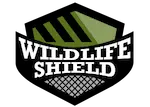Raccoons are crafty little fellows when it comes to scavenging. They do have hands so it is easy for them to really get in to places that you thought were secure originally. They are exceptional climbers. They climb up down spouts and get on your roof and can enter your home through any 4 inch holes. Your chimney is one way for them to get in for example or any small cracks or weathering.
Once a raccoon feels comfortable in an area with a food supply and protection they will start to nest there. They usually have three or four babies in a litter which can continually grow into an infestation on your property. If you notice a chirping sound in the fire place (usually in the spring) then it might be a sign that there is a family in there. Screaming and crying is a sign of mating too. February is the month to really look out for that.
Not only do they get into your trash, kitchen and clog up your chimney but they also do other damage. They can kill your poultry and your crops. If you have dead chickens in your coop then it could be a raccoon problem. Also they will eat vegetables in your garden and any pet food left out. If the raccoon is big enough, they can eat small pets as well. You may also have to watch out for moles in your garden. They are a bit trickier because they usually are underground.
Raccoons are destructive critters. They roll-up turf and sod on your property to find bugs and worms to eat and bring back for their children. They can cause extensive damage over time so the sooner you take care of it the less expensive the entire excursion will be.
They also ruin structures. They will rip up shingles and fascia boards to get in and make a living space for themselves or try to enter your home that way. They are pretty strong with their hands and their teeth for chewing and ripping holes in roof lips and siding.
Extraction services will help you look for raccoon tracks by putting down a powder to see where they are traveling to and from. They put down a powder to lead them in the right direction to the family.
For preventative purpose it is a good idea to secure your chimneys with caps which will keep not just raccoons out, but all animals out. Also try to secure your trash cans inside and outside your buildings. Have the lid down always. Coyote urine and chemicals will repel female raccoons. They will feel nervous for their children and pack up and leave to go to a safer area with the family.
If the problem persists after you have tried all the natural approaches to keep your family and their family safe, you can also trap them in footholds, body-grips and cage traps. If the raccoon family won’t leave it could result in disease, sickness, bacteria or physical harm within your property. A professional wildlife removal service tries to keep animals out of harm’s way until it becomes a threatening situation for your family.

